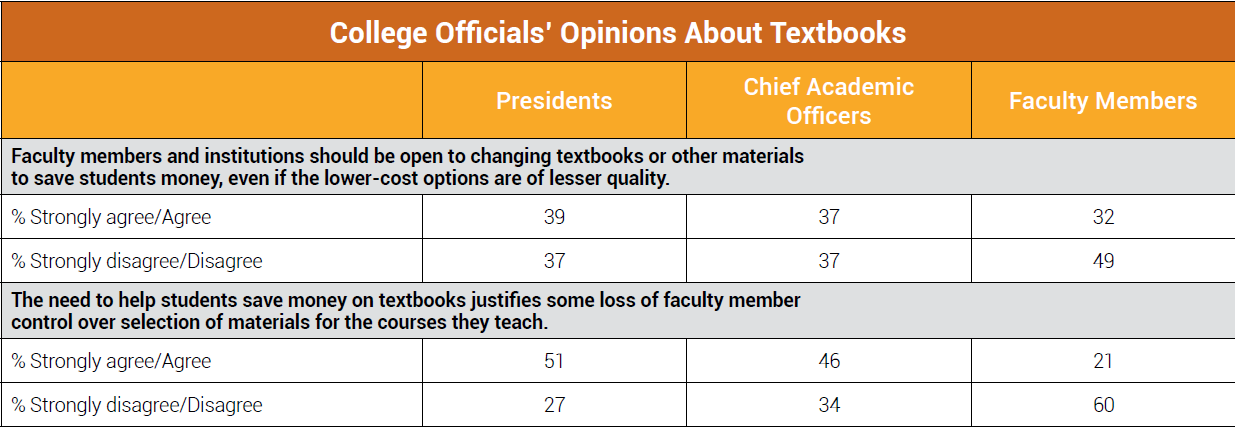You have /5 articles left.
Sign up for a free account or log in.
College and university presidents overwhelmingly worry about rising student spending on textbooks and course materials and support the use of open educational resources to lower those costs. But there are limits on how that philosophical support should drive behavior -- theirs and their faculty's.
Those are among the findings of Inside Higher Ed's 2019 Survey of College and University Presidents, conducted with Gallup and released last week. A copy of the survey report can be downloaded here.
Eighty-seven percent of presidents agree that textbooks and course materials cost too much, with public college presidents 10 percentage points likelier than their private college peers to agree or strongly agree. The overall proportion is down slightly from 2018, when 91 percent of presidents agreed about the high price of textbooks.
Campus leaders support the use of open educational resources -- free and openly licensed digital curricular materials that can be shared and remixed -- with similar enthusiasm (85 percent). Again, public college leaders express more support than presidents of private colleges, as seen below.
The presidents' support has its limits, though.
Roughly similar proportions of presidents agree (39 percent) and disagree (37 percent) with the view that "faculty members and institutions should be open to changing textbooks or other materials to save students money, even if the lower-cost options are of lesser quality." (Public college and university leaders are 10 percentage points likelier to support that idea, by 45 to 35 percent.)
They are about twice as likely as not (51 percent to 27 percent) to agree that "the need to save students money on textbooks justifies some loss of faculty member control over selection of materials for the courses they teach."
On that score, they differ from faculty members themselves, who responded to the contrary in Inside Higher Ed's 2018 Survey of Faculty Attitudes on Technology last fall, as seen in the table below.

For the second year in a row, the Inside Higher Ed survey asked presidents to rate how well-prepared they felt for a set of roles they fulfill as leaders of their campuses.
As in last year's survey, presidents deemed themselves less well-prepared for digital learning issues than for many of their other roles. Only 49 percent (greater only than for fund raising, at 48 percent) of presidents said they were well-prepared or very well-prepared to deal with digital learning matters. That is up slightly from last year's 45 percent.
By contrast, more than 8 in 10 presidents declared themselves to be were well-prepared for working with faculty members (84 percent) and for academic affairs (83 percent), and nearly
7 in 10 said they were well-prepared for financial management (68 percent) and admissions and enrollment management (68 percent).
Differences were evident by age and duration in office. Fifty-three percent of presidents under 60 described themselves as well-prepared or very well-prepared for digital learning issues, compared to 46 percent of those 60 or older.
And 61 percent of campus leaders who had been a president for less than three years said they were well-prepared, in contrast for 45 percent of those who had been a president for at least three years.









